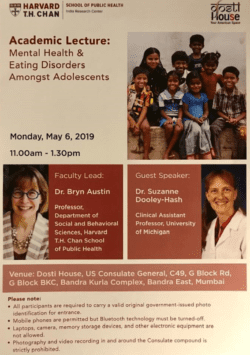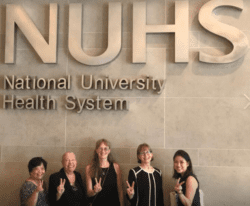The current global political environment is a topic of many conversations, worries, and hopes. Most associations based in the US tend to focus their advocacy efforts on US regulation and legislation alone. In an increasingly interconnected world, it’s important that associations take necessary steps to be able to proactively establish relations, gain credibility, and be considered an important stakeholder in regulatory or advocacy matters wherever in the world they emerge. This strategic positioning requires careful planning, continuous monitoring, and agility. When done right, it can influence issues of great importance to the members of the associations and the systems they impact.
Here are some tips for building a successful, sustainable global advocacy program that will serve your members well:
- Do your homework! Be clear about the outcomes you hope to achieve and why they matter. Be single-issue focused – Sure, there a lot of messages you want to convey – tackle them one at a time.
- You may have a point of view on other aspects/issues in the country. You can be aware of them, but don’t address them and don’t take sides. Regardless of how comfortable you feel with those you meet with, do not engage in side conversations concerning politics.
- Understand how – and who – regulates your “issue” in each country you will address. Brush up on your “civics” in the countries that are important to your stakeholders. Keep in mind, every country is a little different.
- Understand the cultural and national differences that will color respective views of your position/mission.
- Be “aware” of the political climate and timing of overall government structure and office holders in each country. The weeks before a national election may be a good time to build relations with potential candidates, but not a lot may happen in the current administration.
- Know what the arguments against your position might be.
- Know your numbers and be able to explain what the fiscal impact (pros and cons) is for your proposal. Be prepared to explain how your proposals will be in the best interest of the country.
- Identify and use the voices of local stakeholders. If you have members in the country, use them to help tell your story – as local citizens their voices will always be stronger than your own. If you don’t have members locally, identify those locally who will have an interest that benefits from your point of view and engage them.
- Read the local and national press. Many local and national governments publish their strategic priorities on their websites. If you can frame your message in terms of their priorities, you improve your chance of being heard.
- Share insights and evidence from the US – but listen more. Don’t be US-centric –and more importantly, don’t appear to be US-centric either!
- And finally, recognize that this is an investment – you probably won’t enjoy an immediate pay-back. But the rewards of spreading your mission and or increasing the favorable market conditions for your members can be enormous.
A client of Virtual, the Academy for Eating Disorders is an international medical society that strives to foster research and spread awareness and education about the treatment of this serious mental illness. Committed to achieving a world-wide improvement in the diagnosis and treatment of Eating Disorders, AED has grown its membership to include members from 78 countries. They have established chapters in Latin America, Europe, and the Middle East, and have national partner organizations in 34 countries.
Recently to begin to establish a presence in South East Asia, AED’s CEO and two members – a world-renowned researcher and a physician specializing in treatment of eating disorders, traveled to Mumbai and Singapore, where they presented seven seminars at hospitals reaching over 1,200 physicians and health care professionals, and met with key government officials in the ministries of health.
The outcome of the investment is an emerging new partner association of the local professionals, and the development of an advisory service to provide specialized expertise in particular patient situations.

Back to Knowledge Hub
